Copper pans are beautiful and durable pans amazing for cooking a wide variety of food. While there are non-stick options, it is good to know what to do in order to keep food from sticking to copper pans. Let’s see what are some of the steps that you can take.
How To Keep Food From Sticking to Copper Pans
1. Seasoning the Copper Pans
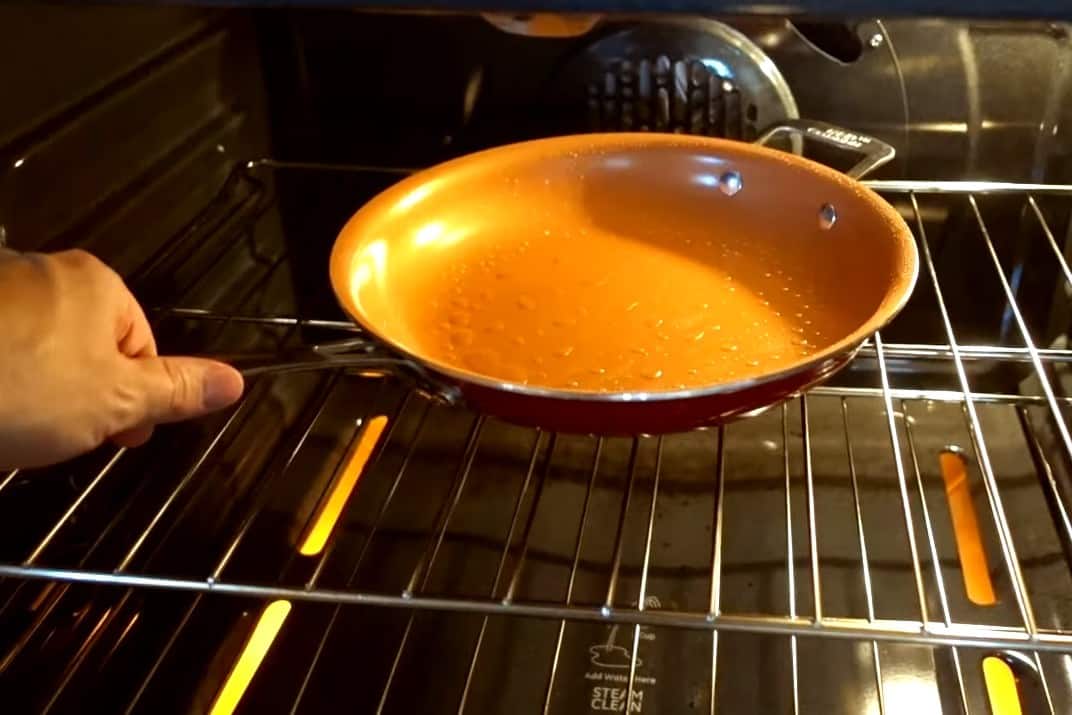
Seasoning is a great start to keeping food from sticking to a copper pan. You should do it once in a few months (up to six months, depending on how often you use the pan). Make sure to know what kind of lining your copper pan is coated with first.
Tin is naturally non-stick, so you shouldn’t season a tin-lined copper pan. However, if your copper pan has a stainless steel or silver lining, seasoning is a great way to prevent the annoyance that comes with food sticking to the pan.
If you are not yet sure how to properly season a pan, just follow these simple steps. First of all, clean your copper pan. Use mild dish soap and hot water. Second, make sure that is completely dry. Then, put some vegetable oil in it and use a paper towel to spread it evenly on the surface.
Turn on your stove and put the oiled copper pan on it. When that happens, remove the pan from the stove and let it cool down to room temperature. Once it cools down, use a paper towel to remove any remaining oil.
That’s it! The process is pretty simple but very useful. It provides your pan with a natural non-stick layer. Even better, you can do it at home and as often as it is needed. If you notice that food started sticking to a pan, just season it again and continue to use it regularly.
2. Use Shortening
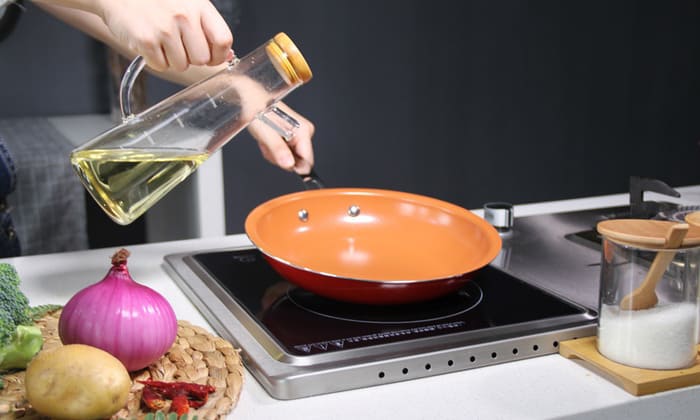
This is especially true if your copper pan is sticky. Avoid trying to fry or cook something without using shortening, butter, oil, or cooking spray. Chances are the food will stick and that’s probably not what you want. You should even do this for non-stick surfaces if you want to be completely sure that the food won’t stick to your pan.
3. Use Non-Metal Utensils
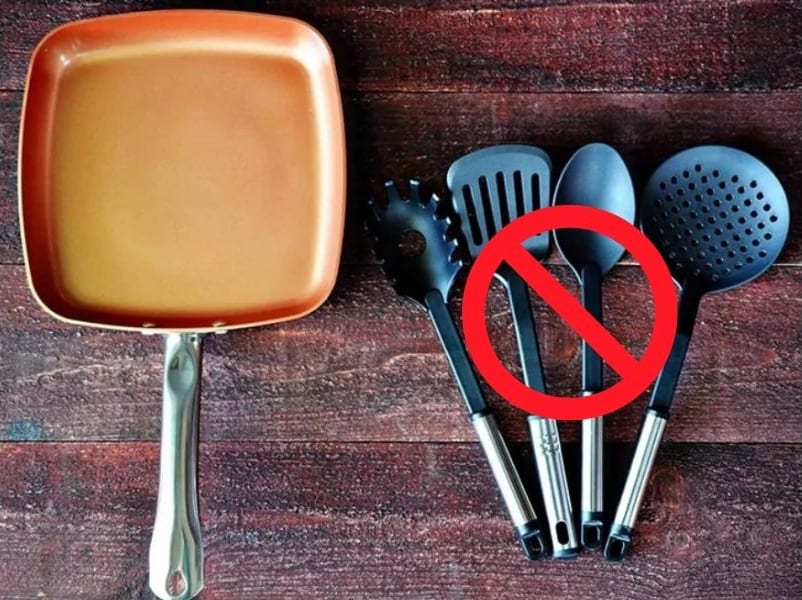
Using metal utensils on copper pans is not a good idea, even if you just use a fork to turn meat to the other side. Metal utensils can cause micro damages to a pan that you may not be able to see, but they are one of the reasons food starts to stick to a pan. Instead, use plastic or wooden utensils as they are safe.
4. Don’t Preheat It
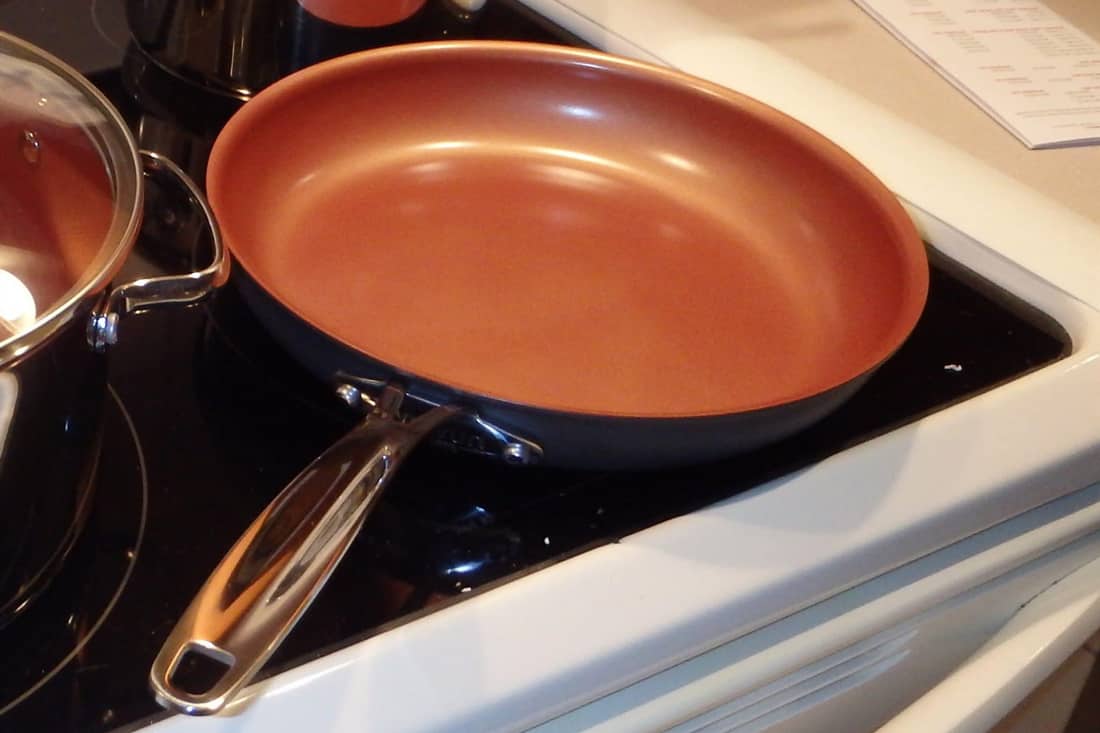
As mentioned, copper is a great heat conductor. It heats up so fast that there is absolutely no need to preheat it. You should be especially careful if your copper pan is lined with tin. Overheating can cause tin to start falling apart.
Another thing that you should do is prepare all of the ingredients that you need for cooking beforehand. You don’t want your copper pan to stay very hot for a long time while you go around the kitchen looking for something that you need.
Third, remember that there is usually no need to cook at very high temperatures if you are using a copper pan. The medium temperature will usually do the trick for most of the dishes that are commonly prepared with this amazing cookware. All of this is important because constant high temperatures can affect the surface of a copper pan and it may become more prone to stickiness.
5. Clean It Properly
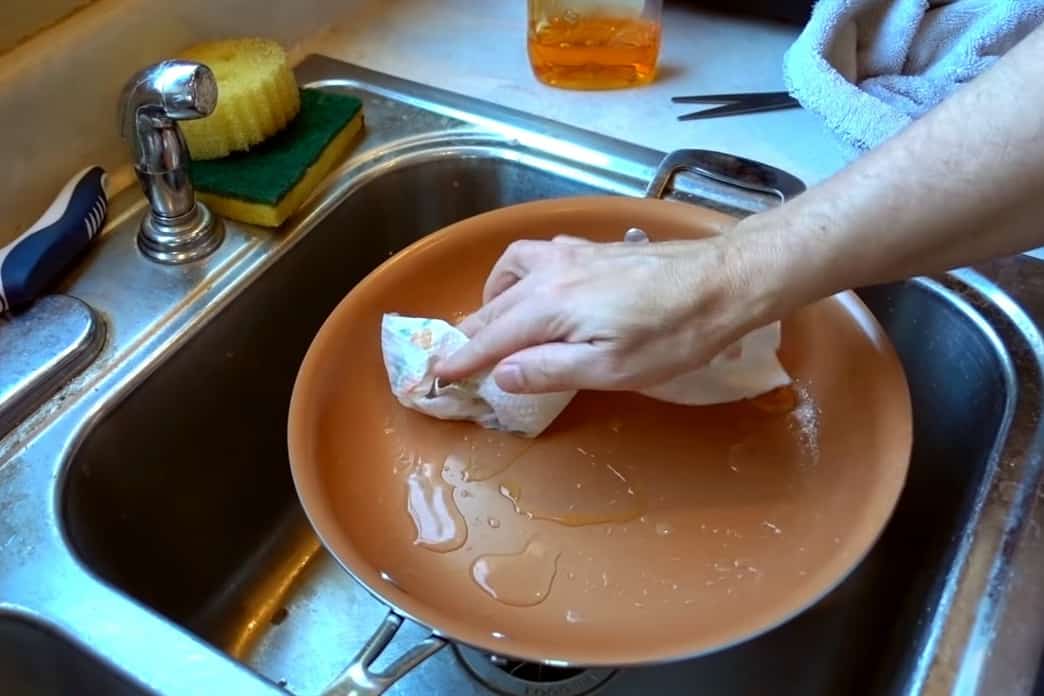
The first thing to remember is to avoid using a dishwasher, regardless of the lining your copper pan is coated with, as the harsh cleaning process can be damaging to the copper. Instead, try to keep the washing part of maintaining your copper pan as simple as possible.
Try cleaning it using only paper towels, especially if your copper pan is non-stick. If that isn’t enough, wash it with lukewarm water and mild dish soap. If you need to scrub it, use a gentle cloth to do so. It’s very important to avoid anything abrasive.
Any damage, even if it cannot be seen, can cause food to stick to the surface. Never put a cold copper pan directly onto a preheated stove, and never put a hot copper pan directly into a cold place, like a refrigerator. Don’t even use cold water until a pan is cooled off. These kinds of temperature changes can be damaging to your copper pan.
Some Things To Know About Copper Pans
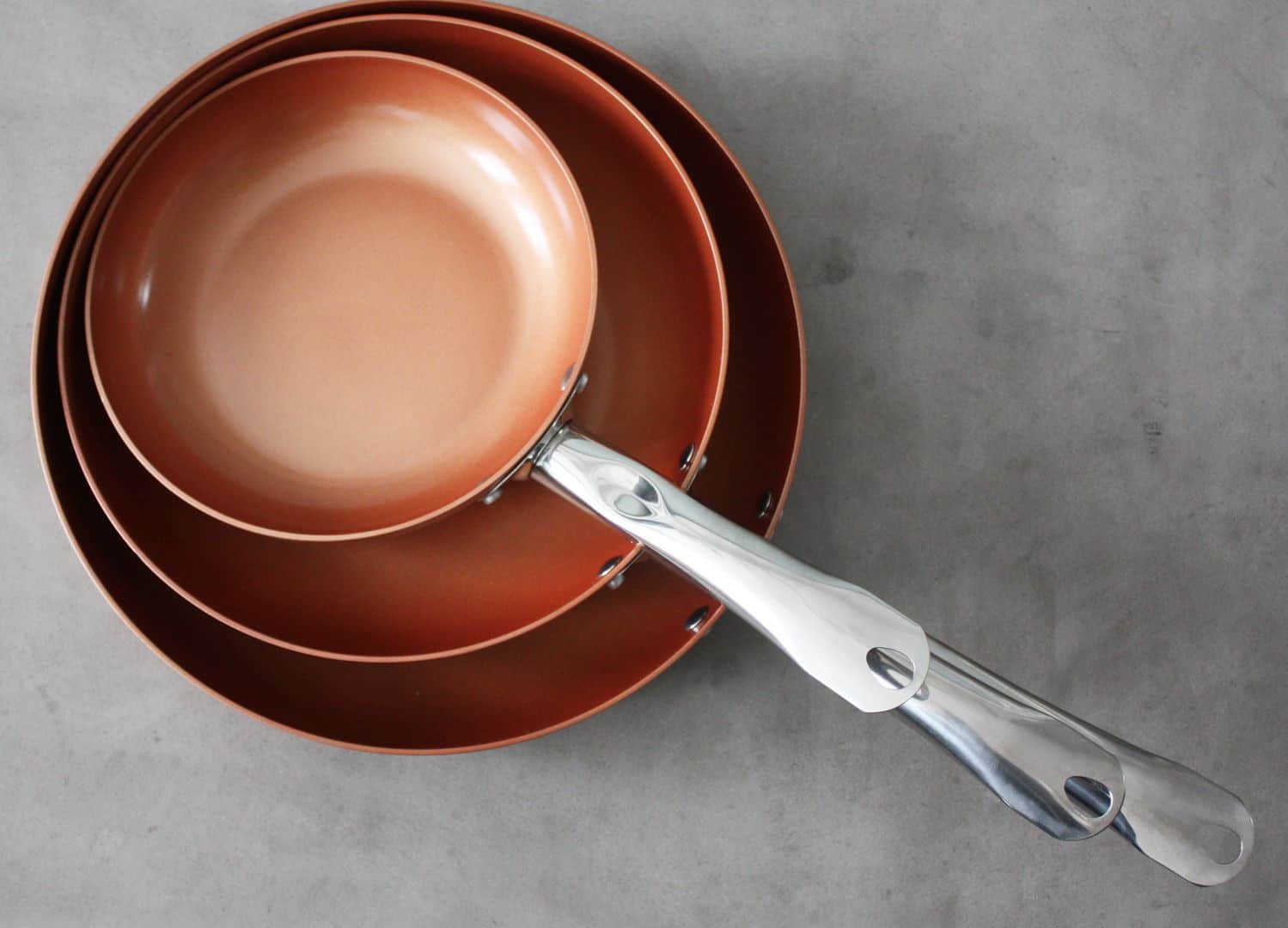
Copper is a high-quality material
Copper is one of the first metals ever used in the history of our civilization. It is strong and corrosion-resistant which makes it very durable. One of the most important properties of copper is its heat conductivity. The whole surface of a copper pan heats up very fast, and what’s even better, it cools down quickly too.
If you choose a copper pan, you won’t have to worry about overheating it and burning food if you prepare more than one serving end-to-end. It also means that a copper pan will heat up evenly, which makes it perfect for roasting. Another thing that is worth mentioning is that copper has antibacterial properties.
While all of these qualities make copper a perfect material for pans, copper itself is highly reactive. That means that it reacts to acidic food and changes the taste and color of the food you cook in it. While a slight change in taste and color doesn’t sound so bad, it can be toxic too. That’s why most of the copper pans are lined with another, non-reactive material. [Benefits Of Using A Copper Pan]
Unlined Copper Pans
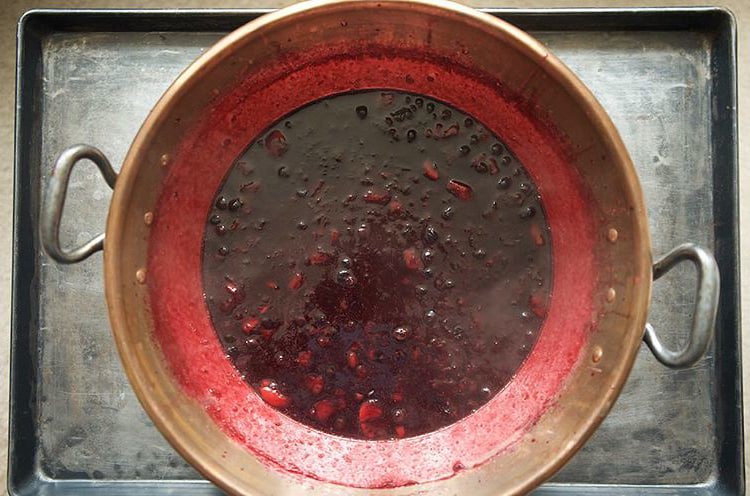
Unlined copper pans are usually used for cooking food that is either not acidic at all, or includes some ingredient that neutralizes the acidity. Many people love to use unlined copper pans for making jams.
Sugar in jam neutralizes the acidity of the fruit, and jam can be cooked more quickly than in any other cookware. Unlined copper pans are safe to use with non-acidic food, but most people opt for those that are lined because they can be used for a variety of dishes.
Tin Lining Copper Pans
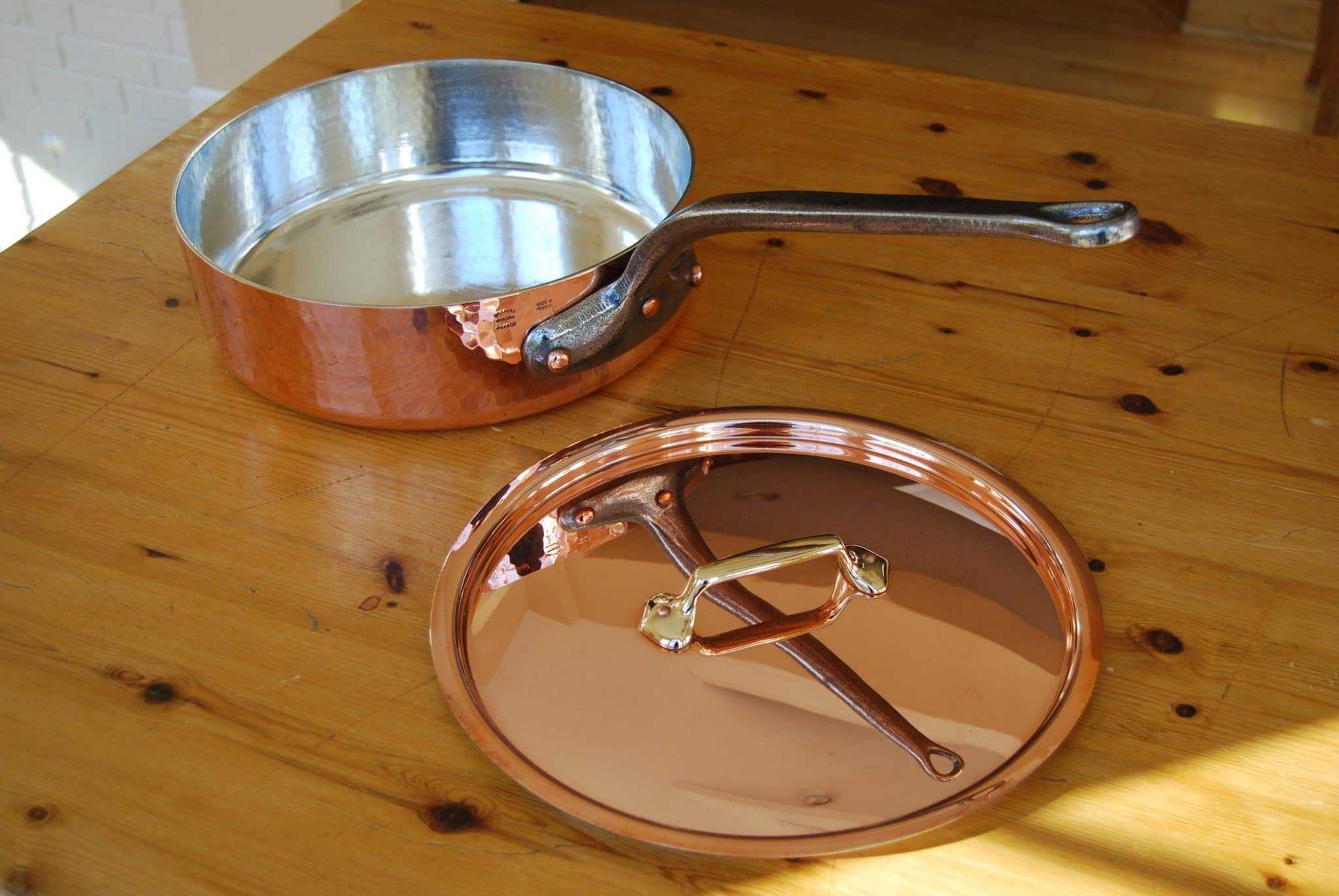
A lot of copper pans nowadays are coated with tin. Tin is a non-reactive material so you don’t have to worry about what food you cook in this pan. Another great thing about tin is that it is non-stick. You can feel free to cook or fry just about anything without having to add too much extra oil.
If you take good care of this kind of copper pan, it can last a lifetime. Avoid using a dishwasher and any abrasive soaps or sponges. Tin is very durable but there is no need to risk damaging it. Another thing that you shouldn’t do for your copper pan to last longer is overheating it.
Tin has a lower melting point so it can get damaged if it is often exposed to very high temperatures for a long time. As mentioned, copper cools off rather quickly, so when you see that your pan is overheating, just remove it from a stove for a few minutes and then continue with the cooking process.
Stainless Steel Lining Copper Pans
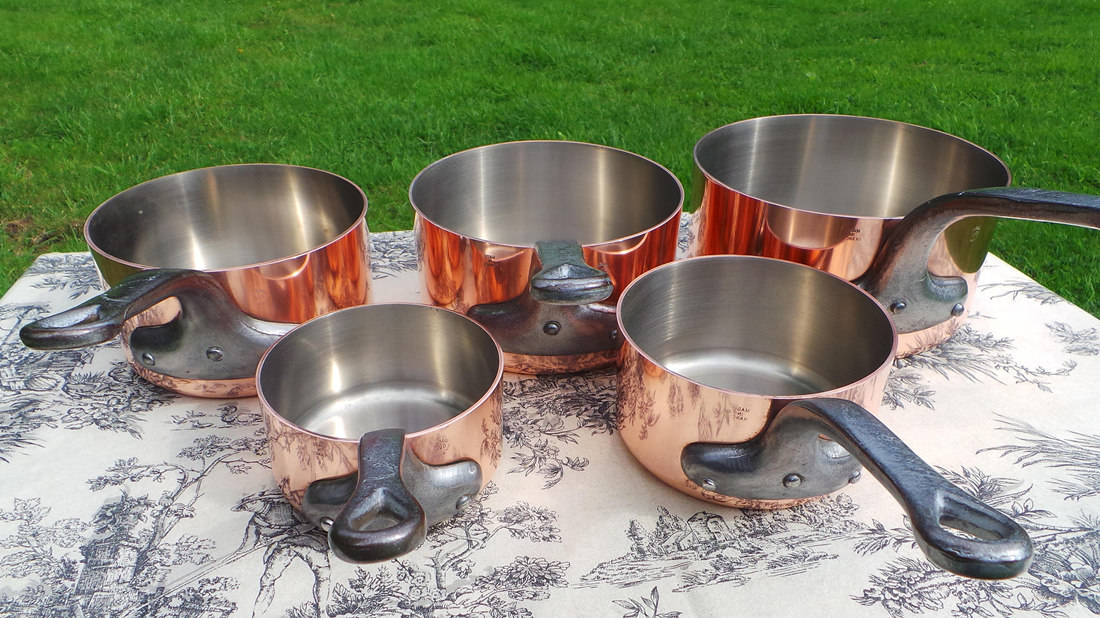
Another common lining for copper pans is stainless steel. The pans lined with this material are even more durable than the ones coated with tin. However, there are some cons to this type of lining. First of all, while copper is a highly conductive material, stainless steel is not as much.
It can mildly affect how fast the copper pan heats up and cools down. Another thing that can be a bit annoying is that stainless steel is not non-stick. That means you must maintain and care for this kind of copper pan regularly.
Make sure to season it every few months. It’s also good to dry it right after washing it so it doesn’t corrode. It doesn’t happen often as it is corrosion-resistant, but it can happen if exposed to water too often and for too long.
Silver Lining Copper Pans
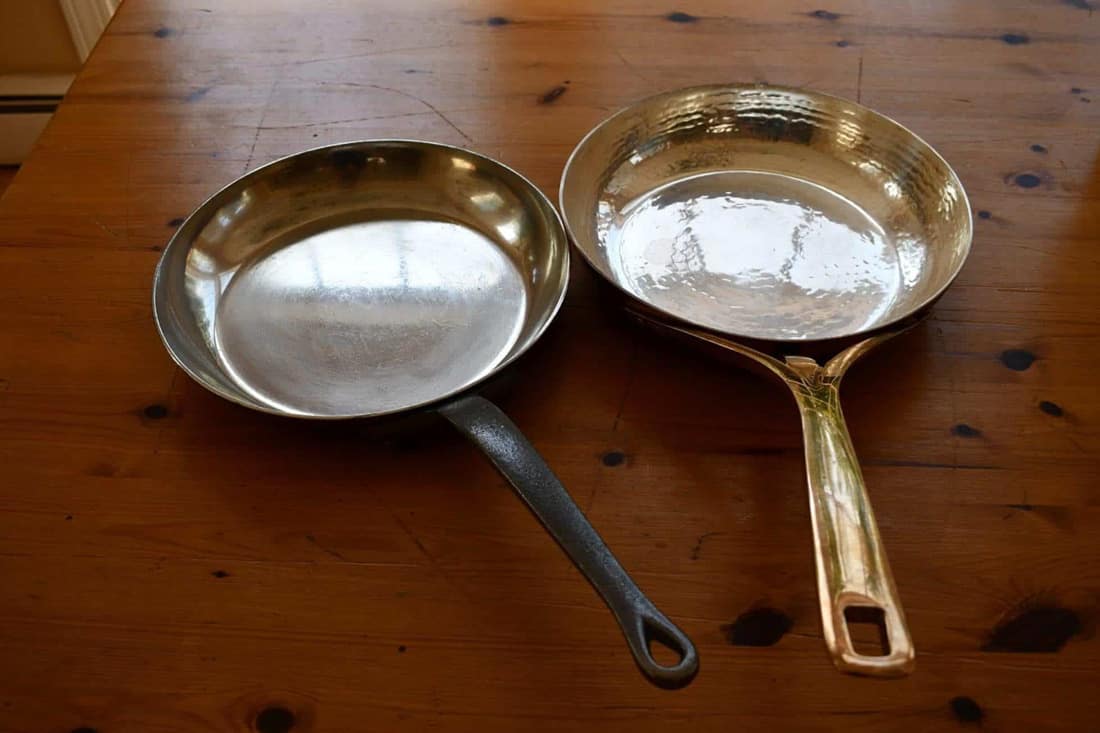
Copper pans with silver lining are very expensive. However, some great benefits come with the price. First of all, silver is an even better heat conductor than copper. Those two make the perfect combination for cookware.
Secondly, silver has a much higher melting point than tin, making it more durable and less prone to heat-induced damage. Third, these pans just look stunning! If you decide to buy a copper pan lined with silver, or if you already have one, avoid using any metal utensils on it.
Summary
While copper pans are indeed useful, they are not resistant to damage that can cause food to stick to them. To keep food from sticking to copper pans, season them regularly, use shortening, don’t use metal utensils, and avoid any aggressive washing methods.
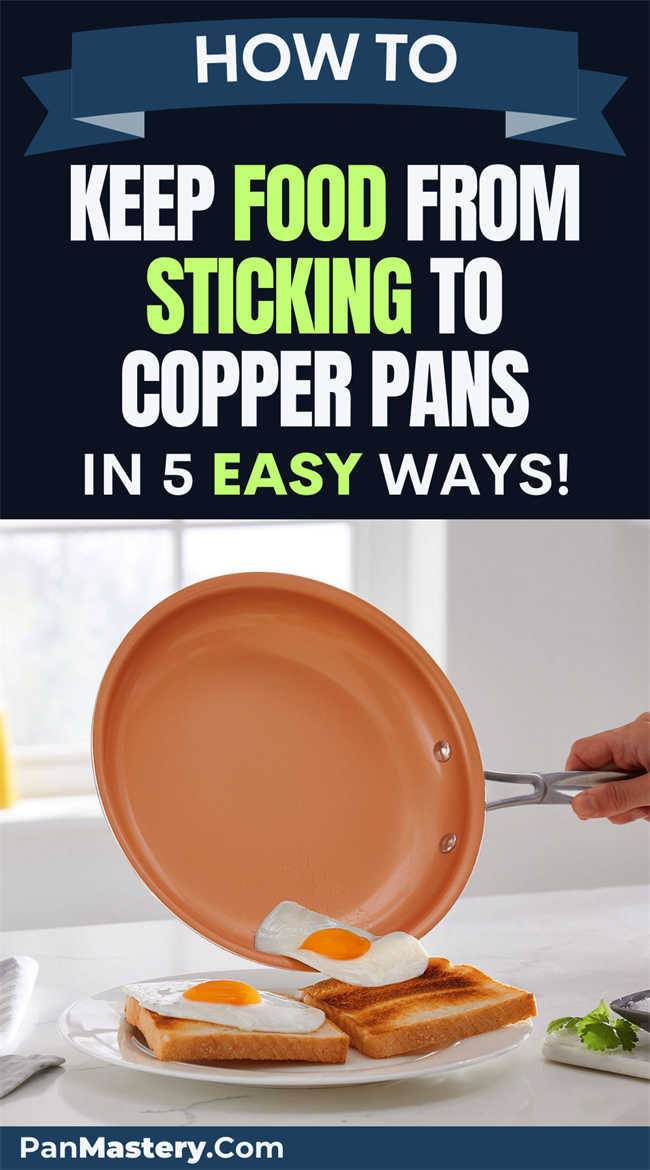

Michael Johnson is the founder of Pan Mastery, Inspired by his blacksmith grandfather’s legacy has a deep appreciation for hand-crafted pots and pans, he provides invaluable guides, reviews, and recipes to enhance your culinary journey.

how long should I keep the copper pan In the oven at 300 degrees after I rub oil in it